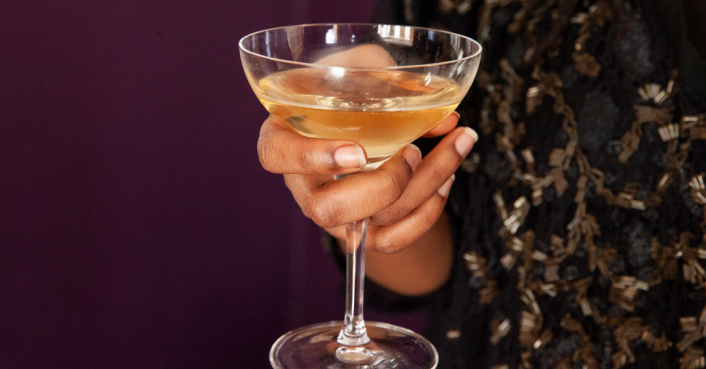Last Updated on May 25, 2023
It’s been a rough week and you’re just waiting for Friday night so you can finally pop open a bottle of wine, relax, and let the weekend begin.
That might be your weekly routine, which isn’t exactly a bad thing. But what if alcohol is one of the only things that helps you wind down and feel less stressed? For some, it could turn into an unhealthy habit that’s hard to kick.
If you’re not sure whether you’re drinking to cope with stress, read on to learn the signs and ways you can relieve stress without reaching for a drink, and also how alcohol is contributing to your stress levels.
Signs You’re Drinking to Relieve Stress
Here are some signs that you might be a stress drinker:
- It feels like something’s missing if I’m relaxing or socializing without a drink in my hand.
- I drink more whenever work piles up or my personal life gets complicated.
- I tried cutting back before but I always go back to drinking when I’m stressed.
- Friends, family, or colleagues have expressed concern about my drinking habits when I’m stressed.
- I get stressed when I haven’t had a drink in a while.
- I’ve noticed certain people or events trigger me to drink.
- It feels like I can’t control my drinking when I’m upset.
- I often feel guilty or ashamed about my drinking.
If you’ve said, “Yep, I do that!” to several of these, there’s a good chance you’re using alcohol to cope with stress. And you’re not alone. Stress levels have been increasing every year and most people admit to reaching for something to cope with their stress, whether it be food, cigarettes, drugs, or alcohol.
In fact, check out this list of the most common stress and drinking triggers:
- Economy
- Money
- Housing
- Covid
- War
The American Psychological Association conducted a poll on stress levels in America in 2022, and levels are higher than ever before. About 80% of all Americans are worried about all the events listed above.
Then, there are the other daily events, like:
- Work difficulties
- Family and relationship struggles
- Peer pressure at social events
- Social media — instigates loneliness and envy
Naturally, living a busy lifestyle with little work-life balance while managing daily life isn’t easy. Without prioritizing self-care and healthy habits, it’s no wonder why we’re all looking to something external to feel better fast.
Does Alcohol Cause Stress?
While turning to alcohol might make you feel better to start, it can cause more stress and worsen symptoms of anxiety and depression both short and long-term. Since it’s a depressant, it slows down the central nervous system, which can make you feel more anxious or sad. From there, a cycle can begin where you drink to avoid the negative emotions, but alcohol’s effects worsen them, in the end.
Take control of your drinkingWhy Do I Drink to Relieve Stress?
Alcohol is a popular coping habit for a reason. It’s available everywhere, socially accepted (and sometimes encouraged), and it offers quick stress and pain relief.
Research shows there’s a definite correlation between stress and alcohol consumption, and it makes sense. People with more stress experience more headaches, fatigue, nervousness, anxiety, and sadness.
Compared to people feeling less stress, the difference is truly staggering. The American Psychological Association shows that almost 60% of highly stressed people get headaches compared to 20% with less, another 60% report fatigue compared to 15% with normal amounts of stress, and almost 60% feel anxious and depressed compared to the usual 10%. With all these negative side effects, it’s only logical to want fast relief.
During the pandemic, for example, 1 in 4 adults said they were drinking more to cope, and 61% said they had undesirable weight changes within the first year, with over 40% of people gaining weight. If we don’t have other coping methods in place, stress seems to naturally make us turn to something for comfort.
How Our Upbringing Affects Our Coping Methods
Most of us learned how to process our emotions by watching and reacting to the world around us.
As children, our primary source of emotional regulation and education is our parents. We learned how to respond to stress based on their reactions and our relationships with them. If they were emotionally unavailable, such as being overly strict, dismissive, highly reactive, or emotional, it’s unlikely we had the opportunity to develop healthy coping skills.
Children need to express themselves fully and receive empathy, validation, and acceptance of their feelings to develop emotional awareness. They’re incapable of emotional regulation and depend entirely on their parents.
Unfortunately, most of us grew up with parents who were unknowingly emotionally unavailable or immature. Sadly, a cycle of emotional trauma passed down from generation to generation is common. Parents never fully heal from not getting their emotional needs met, and they unwittingly pass down their traumas and emotional difficulties to their children.
When this happens, we tend to get stuck at a certain age of emotional development and never learn how to accept, understand, and move past difficult emotions in a healthy way. That’s why it’s so common to see adults unable to express themselves fully, snap in anger easily, be highly self-critical, full of guilt, and use manipulation rather than open communication to get their way. We haven’t learned that vulnerability is healthy. And that’s part of what makes something external seem like the only option when difficult emotions arise.
Fortunately, as adults, we have the opportunity to learn how to express ourselves and manage stress in healthy ways. Below, we’ll discuss some starter tips for emotional regulation during times of stress.
Cut back your drinking in 3 minutesHow Do I Stop Stress Drinking?
Here are some tips to help end drinking for stress relief:
1. Create a List of Stress-Busting Activities
Whenever you start feeling stressed, try different activities that release feel-good chemicals, such as:
- Going for a walk in nature — green space is highly underrated and the world’s best all-natural anti-anxiety and antidepressant medication. Just 10 minutes a day can reduce cortisol levels.
- Video calling or visiting a good friend — research shows seeing a friendly face and getting social support is one of the most important factors to improve mental health.
- Cooking or baking, or doing something with your hands — getting into the zone and keeping your hands or body busy helps the brain focus and turn more analytical.
- Putting on uplifting music or a workout video — movement allows your body to release tension and release endorphins, helping to reduce stress. Research shows that anything that gets your blood pumping, like kickboxing or HIIT workouts, or even a light walk, can help with anger, anxiety, and depression.
- Diving into a new hobby — photography, pottery, saucy novels, creative writing, or even a silly reality TV show for a laugh can all help turn your thoughts away from rumination.
Even if you’re really not feeling like doing any of the above, remind yourself that even a few minutes of another activity can be enough to put you into a different headspace. It’s especially the case if you get your body moving or laugh since it can quickly calm your nervous system and reduce stress hormones.
Here’s a tip from Sunnyside Coach Lizzie about alcohol cravings:
“Remember cravings last just around 15-20 minutes! Can you find an activity to keep you busy for that amount of time? Some members like to set a timer to help them stay accountable. A short walk, stretching, or exercise to get your heart rate up can release endorphins and help beat cravings. You can also try grabbing your favorite non-alcoholic drink, or maybe a tea or seltzer water. These can hydrate your body and help you feel satiated.”
2. Work on Your Emotional Awareness
Sometimes we turn to something unhealthy to cope with stress without even realizing it — until we’ve polished off the bag of chips or wine bottle. As soon as you notice you’re feeling overwhelmed or engaging in an unhealthy habit, try one of these techniques:
- Journaling — about 20 minutes a day improves emotional well-being. It can help you release anger and pent-up emotions you don’t know how to say. For a cathartic release, you can go wild and take up pages and pages just to write expletives in huge caps (don’t knock it till you’ve tried it).
- Creative time — any creative activity that allows you to express yourself can help you learn to release and move through negative emotions.
- Meditation, breathwork, and mindfulness — turning inwards and paying attention to how you’re feeling, without judgment, can help you jumpstart your emotional awareness and reduce anxiety and depression.
- Trigger workbook — you can start recording what’s triggering you to drink more and look for ways to overcome it.
- Communication — try ordering a communication workbook or confiding in a friend to practice speaking your mind. You can also try online or in-person therapy for personalized help.
Of course, there’s no pressure to become a yogi overnight or meditate for 30 minutes a day. Starting slowly and experimenting with different techniques is going to give you your best chance of finding what works — and it’ll change day by day, so flexibility is key.
Check out this common stress trigger from one of our Sunnyside users:
Trigger: “Being around people who test my patience/annoy me and make me want another drink!”
Coach Christine’s Tip: “Take a moment to walk away and get some alone time. During your alone time, use your five senses to ground yourself where you are, not where your patience was tested a moment ago.”
3. Create Alcohol-Free Social Events With Friends
One of the biggest obstacles people face when trying to drink less is feeling like they’re going to miss out on time with friends. Just remember that, however awkward it might feel at first, you can explain to them that you’re feeling the need to drink less. Fortunately, our society is becoming much more tolerant and understanding, and it’s more than likely that they’ll support you (and if not, maybe it’s time to try new activities to meet new people).
Ask friends to meet for physical activities instead of restaurants and bars. It could be going for a walk, fitness or dance class, hiking, or trying a new hobby together like photography, art, or pottery class. You never know, your friends might surprise you. And if you go anyway to try something new, you might make new friends with similar interests.
Here’s another common stress trigger example:
Trigger: “When I’m at a work event with an open bar or traveling for work with colleagues, it can be tough to turn down drinks.”
Coach Christine’s Tip: Share your goal with a trusted colleague! I often find my co-workers are also trying to limit their consumption at work events!
4. Make A Long-Term Stress-Relief Plan
Life’s always going to throw curve balls, but at least there are a few things you have some control over. Think about what you could do to reduce your stress long-term, such as:
- Work — fewer hours, delegate, talk to your boss about your schedule or workload, etc.
- Relationships — learn and practice new communication techniques through books, articles, and therapy. For example, you could start by creating non-negotiable quality bonding time every week if that’s what’s lacking.
- Depression and anxiety — try therapy, support groups, read about new coping methods, and practice healthy stress-relieving activities with some of the tips above.
Here’s a great example from a mindful drinker about their stressful day plan:
“If I have a stressful day at work, I usually end the day by pouring myself a glass of wine. But when I’m being mindful or this happens on a planned dry day, I’ll spend a minute doing deep breathing exercises, and then go for a 10-minute walk outside. This helps me delay the desire to have a drink, and is often enough to get past the initial frustrations I had.”
5. Practice Self-Compassion
One of the most important steps we all forget about is being kinder to ourselves. Maybe it sounds silly or childish, but it’s truly an essential part of mental health. If you’re highly critical of yourself, you’re going to have a harder time when life gets difficult. It’s just not in our nature to feel calm when we’re speaking harshly — just think of how a child feels when they’re getting yelled at or scolded.
Research shows that people who are self-critical tend to suffer from anxiety, depression, eating disorders, and substance abuse problems. We all know that humans need support and encouragement to thrive, so if you’re not giving that to yourself, you’re going to suffer.
Here are a couple of ways to practice compassion in stressful times:
Trigger: “When I have a social event to attend, I tend to feel anxious and use alcohol to feel more comfortable and confident.”
Coach Benjamin’s Tip: “Instead of relying on alcohol, try practicing positive self-talk before the event. Remind yourself of your strengths and past successes, and focus on the positive aspects of the upcoming event. You could also try visualizing yourself having a good time without alcohol or bring a non-alcoholic beverage that you enjoy as a substitute. This can help you feel more confident and in control without the negative effects of alcohol.”
Trigger: “When I can’t escape the feeling that my life is a mess or out of control, the urge to drink and forget it all can be overwhelming.”
Coach Jennifer’s Tip: I say “Stop” out loud, remind myself that I’m lost in negative thoughts, and remember with pride that I’ve made it through 100% of every other bad day in my entire life. I can’t change the world, but I can control how I respond to it and to my own thoughts. Then I take care of myself by drinking a glass of water and writing down 3 positive things about myself and my life. (Hint: #1 can be joining Sunnyside!)
Ready to drink less? Click here.How Sunnyside Helps
With Sunnyside’s coaches and community of support, you can work to reduce your drinking to cope with stress. We use the science behind habit-breaking and building to make it as easy and pressure-free as possible, and it can be applied to your alcohol and stress habits.
Take the 3-minute quiz to create your own personalized plan so you can begin to reduce both your stress and drinking.




